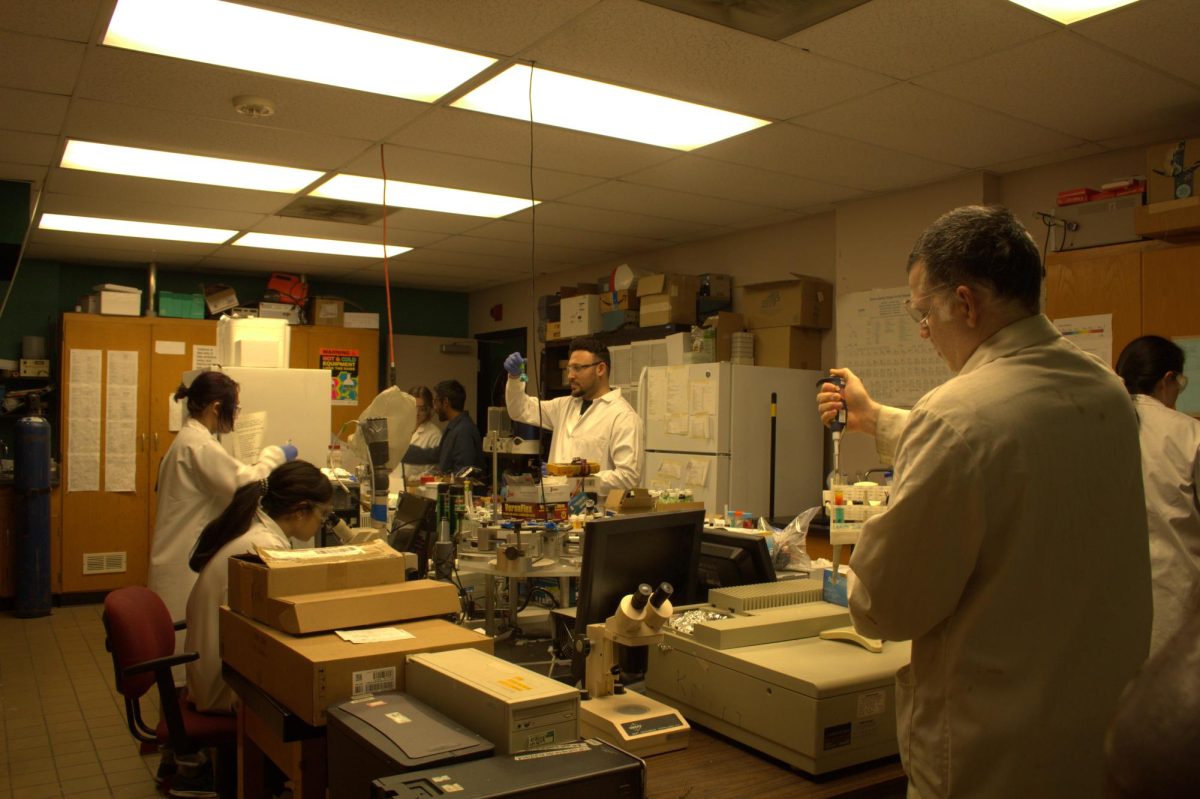Programs could face consolidation
January 31, 2012
A state-mandated review of academic programs could mean a consolidation or cuts of programs in the university.
The provost’s office put together a committee in the fall semester to complete a review of all academic programs on campus. The review is a state requirement for all public universities in Illinois to complete. The act requires universities to send the report to the Illinois Board of Higher Education on degree programs that have low enrollment, few graduates and high costs.
If the state deems it necessary, certain programs could be consolidated or even cut from the university.
Advertisement
Provost John Nicklow said the university has always sent in an annual report to the Illinois Board of Higher Education, but this is the first year it’s been a requirement to report on weak programs.
Before the preliminary report submission deadline of July 1, however, Associate Provost for Academic Programs Jim Allen said the campus community will have a chance to raise questions and concerns about the review as well as share ideas and recommendations for it. Input from the Faculty Senate, Graduate Council and the faculty-at-large will be considered, he said.
“This is an evolving document,” Allen said. “It’s not carved in stone; it’s very fluid. We’ve got lots of things yet to change before we’re done.”
An open public forum will be held Thursday in the Morris Library Guyon Auditorium from 1 to 2 p.m. for community feedback, he said.
Degree programs could be flagged as in danger for three reasons, according to the Recommendation of the Program Changes Review Committee.
First, enrollment numbers are considered. Associates and undergraduate programs with fewer than 25 majors, masters programs with fewer than 10 majors and doctorate programs with fewer than five majors are considered below the enrollment standard.
The second standard a program must meet is through graduation rates. If an associate’s degree program has fewer than 12 degrees granted, a bachelor’s program has fewer than six or a master’s program has fewer than five, it falls below the graduation standard. Doctorate programs are expected to grant at least one degree a year.
Advertisement*
The third standard — Program Cost Standard — deals with the total number of expenses for the program divided by the number of students enrolled, which is averaged as a cost ratio. Instead of comparing the cost ratio to other programs on campus, the state will compare it to similar programs at the other “big 5” state universities: Northern Illinois University, Illinois State University, University of Illinois at Urbana-Champaign and University of Illinois at Chicago. Allen said if the cost per credit hour is higher than those at other universities, the program will be required to justify to the state why it is more expensive than at other institutions.
Allen said he thinks up to 20 programs at SIU may be flagged.
Nicklow said as worrisome as the results from the report may be, it’s necessary it be completed.
“If we don’t acknowledge it and ignore it, my fear is that somebody’s going to come down and write us a mandate that we close a number of programs,” he said. “I don’t want that for faculty, I don’t want that for staff, and I really don’t want it for students.”
Chancellor Rita Cheng said the committee was put together with members from all over campus to identify what programs could be flagged by IBHE and how they could be remedied with an improvement plan.
The committee has already put together a number of recommendations to cut program costs, according to the committees recommendation. One consideration is whether a program might be better in another college, or if programs could be consolidated together in the same department.
Another idea is to cut down on excess credit hours students are signing up for but do not need to graduate.
Allen said the average number of credit hours a student at SIU acquires by graduation is 139, which is 19 more than needed.
“That’s a semester plus,” he said. “That’s a whole lot of money. We’re costing our students more money to finish their degrees. Could we not save them a bunch by trying to help our students take the right courses with better advisement?”
If a program is flagged by the state, the program is expected to come up with a plan for improvement within 90 days of being informed. The plan must include how to address the enrollment, graduation and cost issues of the program, which will be submitted by the department chair or director through the college’s dean to the associate provost for academic programs, Allen said.
Nicklow said this report would not only serve as an explanation to the state as to why the costs are high but also as an opportunity to discuss the unique elements of a flagged program that would keep the program afloat. He said he thinks the mandated review may be linked to performance-based funding, which becomes Illinois law July 1. The legislation requires universities receive state funding based on degree completion.
Cheng said with performance-based funding, it’s likely the university’s budget will be reduced with the ability to earn it back through improvements in key areas such as graduation rates compared to the number of students enrolled.
Nicklow said the IBHE is pushing for students to graduate in four years with 120 credit hours per student. He said performance-based funding does not call for that yet, but it’s likely it will in the future.
“That link is going to be tighter,” Nicklow said. “Probably sooner than later.”
Allen said the recommendations from the academic program review committee to deal with the state’s mandate will involve a lot of discussion.
“It involves a lot of head scratching … to deal with the state requirements and think about how we can use the scarce resources we have at the university more effectively, more efficiently, in service of our students’ quality education,” he said.
Advertisement








